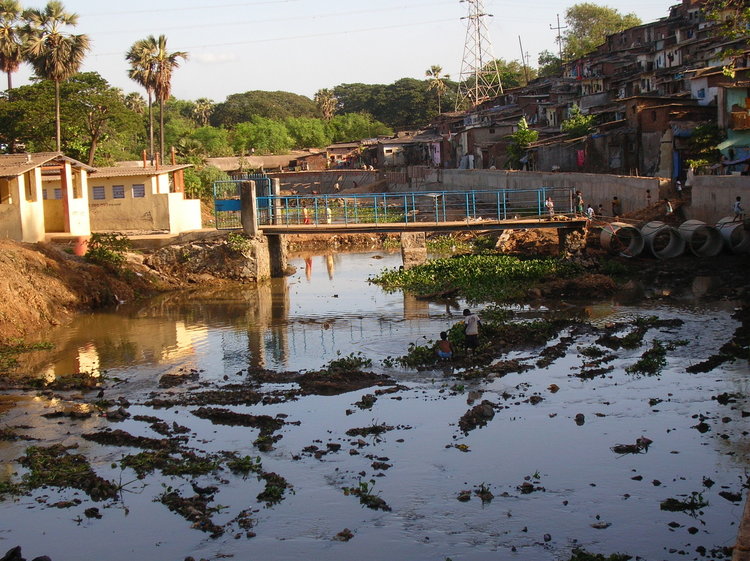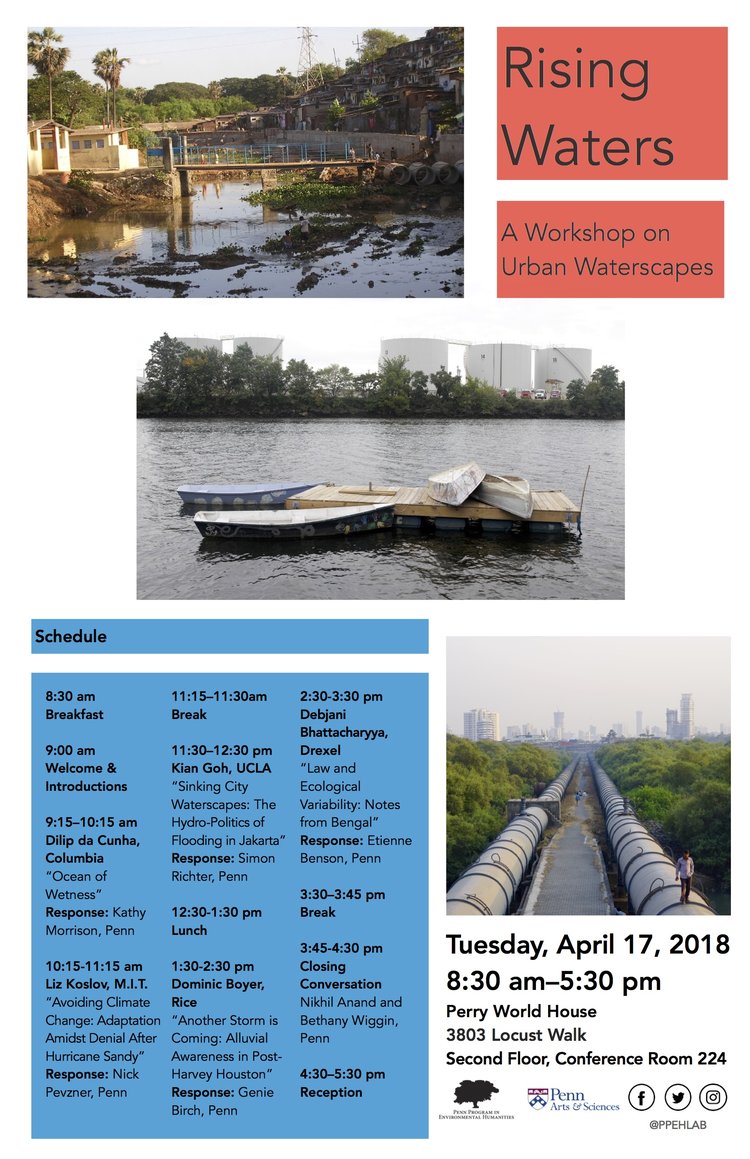Rising Waters: A Workshop on Urban Waterscapes
Perry World House
3803 Locust Walk
Second Floor, Conference Room 224

Cities have long been made through colonial and then modernist efforts to tame the unruly relations between land and water. In port cities as diverse as Philadelphia and Mumbai, engineers have drained wetlands and built river embankments and sea walls to keep waters at bay. These projects have produced particular kinds of ground for the development of industry, commerce and social life as well as particular kinds of water– deepened harbors for shipping vessels, buried creeks, forgotten wells, and waste sinks. While these projects have made urban life possible, they have also produced raced and classed geographies of inequality in the city.
Today, these stabilized (and not always innocuous) relations are being challenged by the rising waters of climate change. As climate scientists project a future unlike times past, the increased propensity for severe storm surges and disrupted weather patterns have unsettled historic relations between land and water in cities. Climate events threaten industries, transportation infrastructures and marginalized residents settled in former wetlands, and they promise to exacerbate social inequalities and further squeeze non-human natures. In these uncertain and toxic times, how might we make space for social justice and non-human natures in and along rising urban waters? This expansive, collaborative project seeks to explore the futures of river and coastal cities in a time where the lines between land and water are muddied all around us.
Rising Waters: A Workshop on Urban Waterscapes convenes leading scholars whose work delves into multiple sites of inquiry – especially along seas and rivers, and around regions impacted by superstorms – toward a critical understanding of the changing conditions of living with water.
Full Schedule
8:30 am: Breakfast
9:00 am: Welcome & Introductions
9:15-10:15 am: Dilip da Cunha, Columbia, “Ocean of Wetness”
Response: Kathy Morrison, Penn
10:15-11:15 am: Liz Koslov, M.I.T., “Avoiding Climate Change: Adaptation Amidst Denial After Hurricane Sandy”
Response: Nick Pevzner, Penn
11:15–11:30 am: Break
11:30 am–12:30: Kian Goh, UCLA, Sinking City Waterscapes: The Hydro-Politics of Flooding in Jakarta
Response: Simon Richter, Penn
12:30-1:30 pm: Lunch
1:30-2:30: Dominic Boyer, Rice, “Another Storm is Coming: Alluvial Awareness in Post-Harvey Houston”
Response: Genie Birch, Penn
2:30-3:30 pm, Debjani Bhattacharyya, Drexel University, “Law and Ecological Variability: Notes from Bengal”
Response: Etienne Benson, Penn
3:30–3:45 pm: Break
3:145-4:30 pm: Closing Conversation, Nikhil Anand and Bethany Wiggin, Penn
4:30–5:30 pm, Reception

Rising Waters is supported by a new Penn Arts and Sciences program that encourages faculty to explore innovative ways of applying their expertise and working with students to address societal challenges. The initiative, called “Making a Difference in Diverse Communities,” provides funding to support teams of faculty and students in multidisciplinary projects that combine coursework, research, and service to address issues of diversity and inequality at the local, national, and international level. Rising Waters is one of five featured inaugural projects.
Project Co-Directors: Dr. Nikhil Anand, Assistant Professor, School of Arts & Sciences, Department of Anthropology, and Dr. Bethany Wiggin, Associate Professor, School of Arts & Sciences, Department of Germanic Languages and Literatures, Graduate Group Member in Comparative Literature and English, and Faculty Director, Penn Program in Environmental Humanities
